A majority of Americans say that the country still hasn't recovered from the financial crisis and many think that another crisis may be on its way.
Five years ago this month, the bankruptcy of Lehman Brothers signaled the start of an economic crisis and the beginning of the Great Recession of 2008. For most Americans, the nation is still struggling with that recession, one that many Americans say had a serious impact on them personally. The latest Economist/YouGov Poll finds just 8% saying the country has recovered from the recession. There is a long way yet to go.
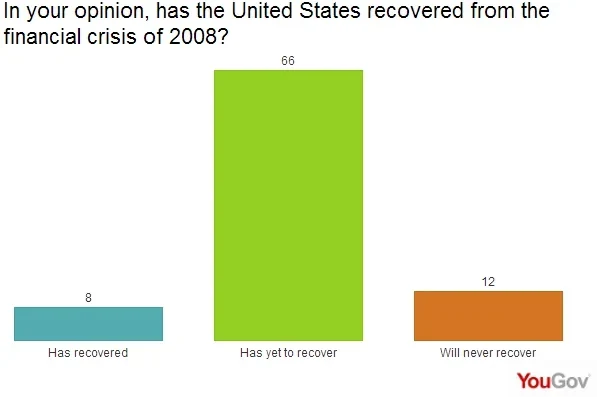
The recession affected many Americans. More than half say they know someone who lost their job in the financial crisis – and 7% claim they personally lost a job. And when Americans are asked how serious the recession was, 41% describe the impact on them personally as serious, only a few percentage points less than the result in early February 2009.
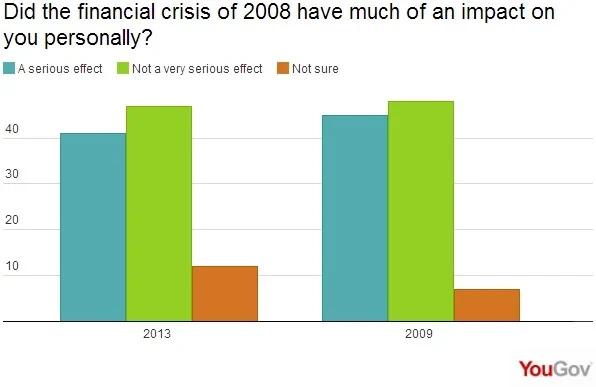
The Great Recession cut across economic levels. Although better-off Americans are less likely than those at lower income levels to report personal impact, a third of those with family incomes above $100,000 a year still say the financial crisis had a serious impact on them personally.
Public reaction and uneasiness about the financial crisis has made many believe that this problems that began in 2008 can happen again – and can happen soon. Just over half say that another financial crisis is likely in the next 12 months, with nearly one in five thinking the chances are very likely.
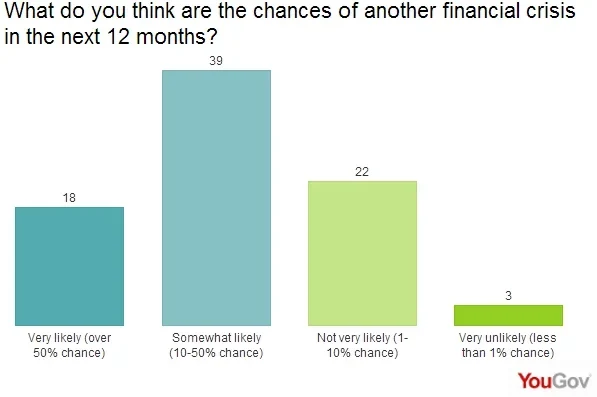
The concern about the possibility of another financial crisis is as high as concern about another terrorist attack. In last week’s poll, just about half the public felt another terrorist attack was somewhat or very likely in the next 12 months. Republicans are far more likely than Democrats to expect both a terrorist attack and another financial crisis.
But all this financial worry clearly makes it difficult for the public to be optimistic about the economic future. Even though the unemployment rate has been dropping, most don’t think job growth will continue. Only 18% think there will be more jobs six months from now, while 27% say the number of jobs will decline. And when it comes to the overall economic situation, more continue to believe the economy is getting worse than to think it is getting better.
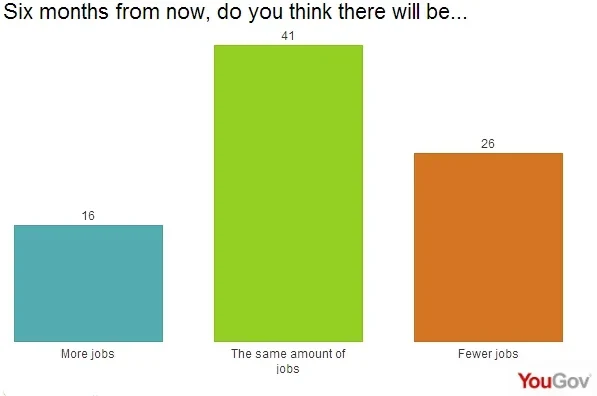
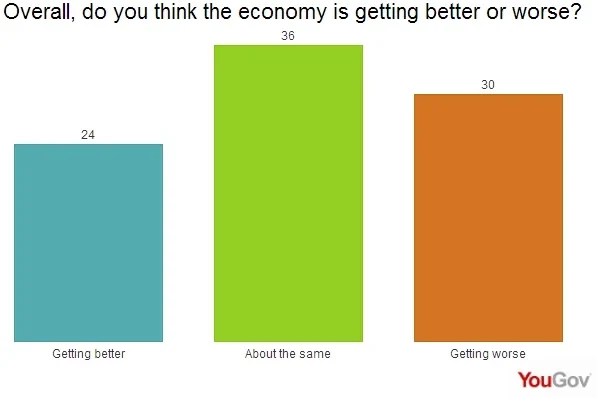
A majority of Republicans take a negative position on the economy; less than half of Democrats are optimistic.
The President continues to get mediocre marks on handling the economy: 36%, just over a third approve, while 52% disapprove. And when asked whether the Administration’s policies have made the U.S. more or less safe from another financial crisis, twice as many say they have made the country less safe than think they have made it safer.
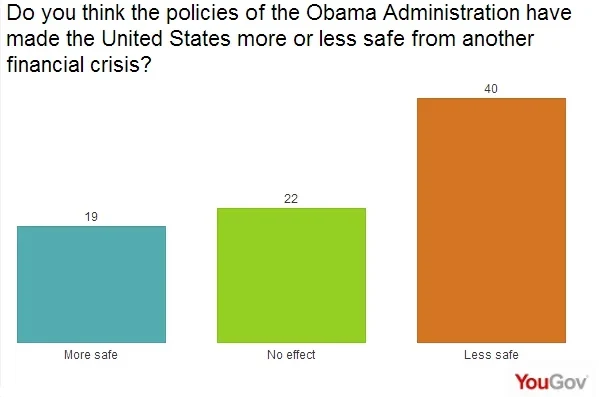
However, President Obama at least escapes blame from most, but not all, of the public for causing the financial crisis, a crisis that began several months before he assumed the Presidency. More say the George W. Bush Administration was responsible. But the biggest culprits are the financial institutions and banks, and Wall Street companies like Lehmann Brothers. Majorities of the public give banks and Wall Street a great deal of the blame.
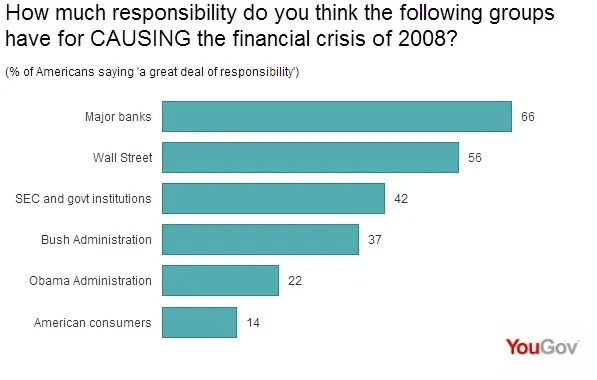
Most Americans don’t blame themselves for what happened in 2008. Just 14% say American consumers bear a great deal of responsibility for the financial crisis. However, about a third give consumers some of the blame. That is especially true for better educated and better-off Americans. Six in ten college graduates, and the same percentage of people with family incomes about $100,000 say the American consumer deserves at least some of the blame.
Full results can be found here.
Economist/YouGov poll archives can be found here.







